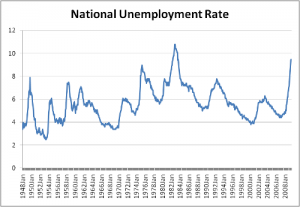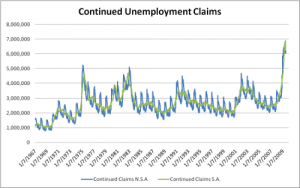The real risk is China, not Greece – 2015 Q2 Letter
Two inflection points long in the making appear to have arrived simultaneously over the past few weeks. In Europe, negotiations between Greece and Euro-zone countries that have lent to Greece appear to have broken down; and in China, the stock market has taken a remarkable tumble. In itself, the Shanghai market’s steep fall is not surprising or remarkable (this was a market which had risen 150% over the previous year), but it is interesting in terms of what it portends for other markets and factors in China.
The various actors in the Greek/Euro crisis have indulged in brinksmanship for a number of years. The ECB, Euro-zone countries and the Greek government have stumbled from one crisis to the next, taking action only when forced to do so. And when they have acted, the result is to defer rather than reach resolution. It is clear to us that no final resolution of Greece’s sovereign debts can be made without some debt relief. The Greek economy has shrunk enormously under the weight of uncertainty and austerity policies. None of the modeled targets for growth have been met and Greece’s debts are now a larger multiple of Greek GDP (180%) than ever before, largely because of the sharp decline in GDP. A sudden growth spurt may solve that, but given high unemployment, it is difficult to see that materializing without some level of debt relief to lower the amount of the outstanding loans and interest payments. In reality, the only thing that has been achieved thus far is that Greek loans have been moved from the balance sheets of European banks to the balance sheets of European nations. European (and international) banks that lent to Greece, knowing the risks, were bailed out. There has been no such deliverance for Greece itself, and, despite frantic 11th hour negotiations, we do not expect one in the coming days.
A crucial factor that has made the crisis much worse for ordinary individuals in Greece is the absence of a pan-European deposit guarantee scheme. Bank customers in the US have enjoyed a federal guarantee for their deposits since the 1930s. This guarantee currently applies to the first $250,000 on deposit at an FDIC covered institution and has been the primary reason the US has avoided widespread bank runs by retail customers for the past 80 years. In contrast, deposit guarantees and guarantee funds in Europe are run at the member state level. So Greece guarantees the deposits in its banks up to 100,000 Euros. Of course, Greece (unlike the US federal government) has no ability to actually print Euros on demand. That means most bank customers treat its deposit insurance with justified skepticism. Greek banks too cannot count on the European Central Bank to lend to them freely in a crisis. There is an emergency lending facility, but it works through the member state central banks and let’s just say relations between Greece and the ECB are not exactly amicable at the moment.
These two factors taken together explain the phenomenon of Greek pensioners queuing for hours to withdraw the maximum amount permitted from their bank accounts each day (60 Euros). They do not trust the funds will be covered by deposit guarantees and Greek banks are limiting withdrawals, afraid they will run out of Euros.
As a study in contrasts, we have Puerto Rico, which is facing a similar government debt crisis, largely brought on by similar factors (mismanagement, misstatement of financial data, etc.). Yet, the impact is limited to the government’s ability to issue more debt and the value of its bonds. Puerto Rico’s bank will face no runs and will continue to function even if the government runs out of money. They are regulated and insured at the federal level. So, though Puerto Rico’s debt crisis is very serious, and will likely require some level of write downs, its banking system continues to hum along and is not at risk. If the European Union had a similar bank deposit guarantee system, we believe the Greek crisis would not have been as severe.
Lastly, what makes the Greek case significant and holds the market’s attention is not the size of Greece’s debts, which at around 300Bn are large, but not enormous. A 30% write-down of those debts would be 100Bn, some individual banks took write-downs in the 30-70Bn range during the financial crisis. Clearly Greek creditors (EU countries for the most part) could survive a 30% write-down.
What concerns the markets is that the Greek crisis lays bare an uncomfortable truth. The European Union is both unable, and unwilling to act decisively or with coordination in a crisis. The reasons are myriad, but to us, it has been particularly striking to hear World War I and II era rivalries and events repeatedly invoked by some commentators and even senior politicians. A skeptical observer might say that the institutions created to avoid the recurrence of war on the European continent seem to be hell-bent on re-living them. In contrast, though, we in the United States have had the traumatic experience of reliving civil war-era animosities over the past few weeks, those fervently invoking a North/South divide are firmly in the fringe and have been for at least a century. The same cannot be said of Europe.
We have been wary of asset prices and debt burdens within China for a number of years. Some of those concerns have bubbled to the surface in the last few weeks as the Chinese domestic market has endured a series of dramatic losses with many stocks hitting their down limits and several have halted trading entirely. Companies can also ask to suspend their own shares and many have. Most observers have expected such a crash since the on-shore Shanghai market has risen over 75% this year. What was underappreciated is how much of this rise has been driven by large numbers of first-time retail investors, many of them buying stock on margin (borrowed money). The conditions appear to resemble the state of the US market on the eve of the 1929 and 2000 stock market crashes. In certain ways, there are broader parallels with 1929. China is at roughly the same stage of relative development with the US that the US was to the UK in 1929. China has also seen massive investment in capital infrastructure with declining returns, not unlike the US investment in railroads in the 20s. Lastly, there are large quantities of questionable loans on the books at Chinese banks. Taken together, this story is much bigger and could have much wider repercussions than that just a few down days in a large emerging market.
The final consideration is political. Though there is a lot of tittering at the prospect of the Communist party attempting to support the stock market, this is driven by legitimate fears of political unrest if a severe downturn were to materialize. Coupled with factionalism within the party, such a downturn could make for a very volatile period in China, politically speaking. The impact is likely to be felt across commodity sectors (where China remains a major consumer), and a risk of contagion to other markets. In the short term, we expect the US markets will be seen as a relative safe haven. Though clearly, as one of the three largest economies in the world, any Chinese downturn will affect global market values.
On balance, we view the bursting of the Chinese equity bubble and antecedent effects as more significant than the Greek debt crisis. In terms of wealth impact, they certainly are — the Chinese stock market has lost over $3Tn over the past few weeks. That is ten times the amount of outstanding Greek debt. Margin balances owed by Chinese investors are larger than Greek debt. The real concern, though, is that the stock market bubble in its rise and fall, may lead to a bigger reckoning of Chinese financial institutions which are holding real-estate and provincial debt. As the real-estate sector has slowed, demand for land, which constituted a crucial source of funding for Chinese provinces, has dried up. Both real-estate developers and Chinese provincial government debts are looking very weak and they are widely held by Chinese banks and investors.
In general, we recommend appropriate caution for investors. Though the US markets may appear to be isolated from events in Europe and China, and might even benefit from some short-term “flight to safety”, they will eventually be impacted, and current valuations stateside do not bode well for that reckoning.
We continue to believe that investors will be well served to reduce exposure to risk assets in their portfolios and move some money into short term bonds and cash while awaiting a better buying opportunity.
 We are frequently amused by the myriad explanations pundits present for any moves in the market. Our view has always been that single day moves are largely inexplicable, and that it often takes investors time to incorporate events into their thought-process, and to translate them into action. An example is the market rose yesterday in the face of much bad economic news. The explanation from pundits was that investors were celebrating the potential victory of a Republican candidate in the Massachusetts special election to fill the senate seat left vacant after Ted Kennedy’s death. Numerous commentators noted that “gridlock in Washington is positive for wall street”. The thinking is that government action creates uncertainty, this leads to businesses spending time and resources trying to compensate for changing rules, and this slows down economic activity and lowers earnings.
We are frequently amused by the myriad explanations pundits present for any moves in the market. Our view has always been that single day moves are largely inexplicable, and that it often takes investors time to incorporate events into their thought-process, and to translate them into action. An example is the market rose yesterday in the face of much bad economic news. The explanation from pundits was that investors were celebrating the potential victory of a Republican candidate in the Massachusetts special election to fill the senate seat left vacant after Ted Kennedy’s death. Numerous commentators noted that “gridlock in Washington is positive for wall street”. The thinking is that government action creates uncertainty, this leads to businesses spending time and resources trying to compensate for changing rules, and this slows down economic activity and lowers earnings.
 Todd Woody writes in the New York Times on
Todd Woody writes in the New York Times on 

